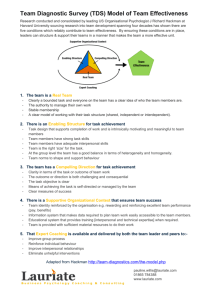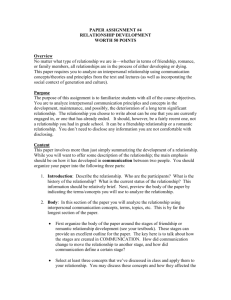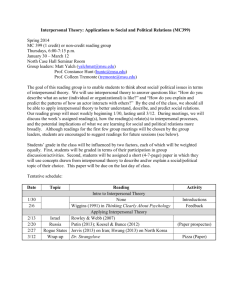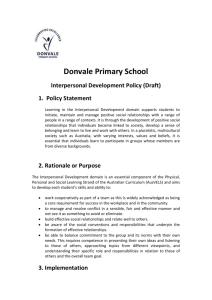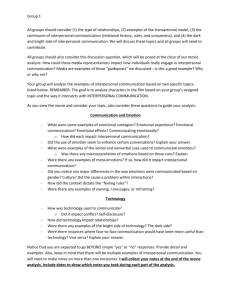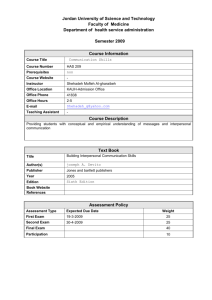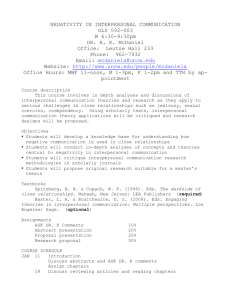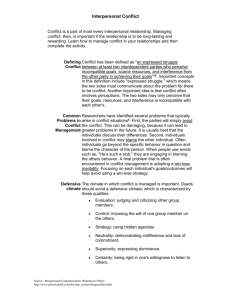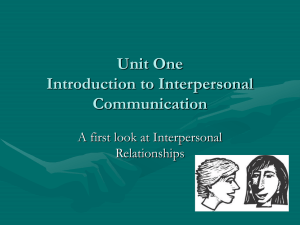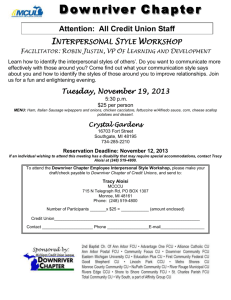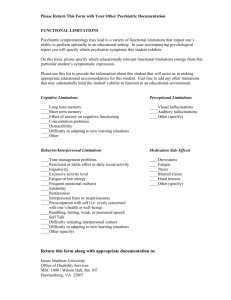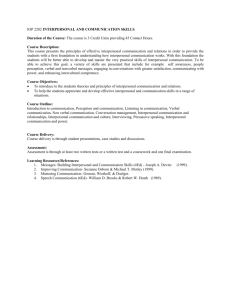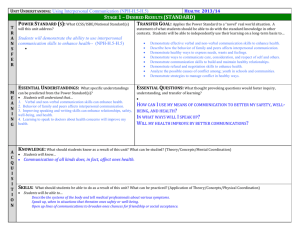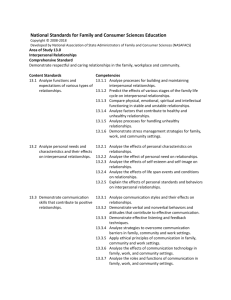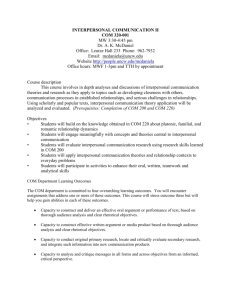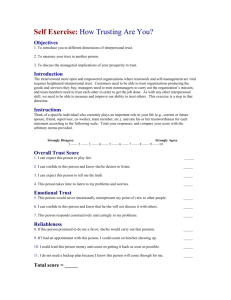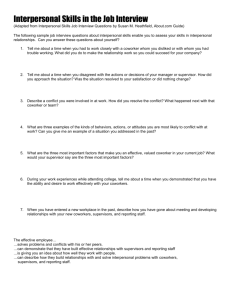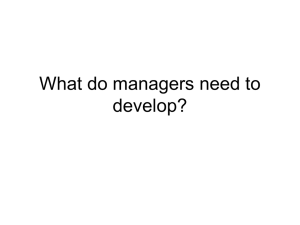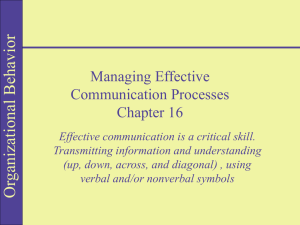Soft Sklls for the Workplace PPT
advertisement
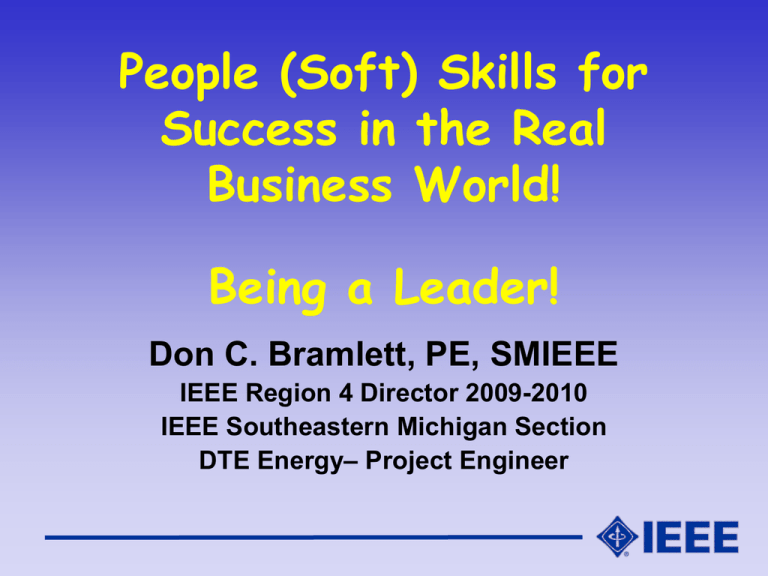
People (Soft) Skills for Success in the Real Business World! Being a Leader! Don C. Bramlett, PE, SMIEEE IEEE Region 4 Director 2009-2010 IEEE Southeastern Michigan Section DTE Energy– Project Engineer Reference Resource “Stuff You Don’t Learn in Engineering School” By Carl Selinger John Wiley & Sons, Inc IEEE Press 2004 Good Basic Life Lessons • You are responsible for yourself • What you don’t know may hurt you, or hold you back • Don’t be afraid of something. Learn about it! • Build on your strengths; target weaknesses • Develop important soft skills • Technical competency is the core of your career in engineering! Definition of Leadership Leadership is the ability to influence others, with or without authority. All successful endeavors are the result of human effort; thus, the ability to influence others is a derivation of • Interpersonal Communications • Conflict Management • Problem Solving / Decision Making Interpersonal Effectiveness Interpersonal effectiveness is the capability of an individual to do this, influence others, competently. Leadership is a direct function of three elements of interpersonal effectiveness • Awareness • Ability • Commitment Understanding Yourself and Others • Understand yourself better and how to relate to others: – – – – Take a Myers-Briggs Indicators test What do you like to do? What don’t you like to do? What about others? (Ask them!) • Be assertive; not passive or aggressive • Updated Golden Rule: “Do unto others as they would have done unto themselves” • Determine your mix among career objectives: money, job security, challenging job, recognition, etc. Working Effectively as a Team • Working through and with people • Thinking “we”, not “I” • Getting the Team to work together by: – Giving the team the big picture – Dividing work fairly – Assigning responsibility to achieve accountability – Giving recognition Interpersonal Communications How to Write Better • Use clear, simple, direct language • Minimize use of acronyms • Read more, to see good writing and improve vocabulary • Ask peers to review your writing • Mentally pretend you’re talking to someone, and write that! Interpersonal Communications Essentials of Public Speaking • • • • • • • • You can do it! Know your subject Know your audience – expectations Practice, Practice, Practice Never just read Speak slowly, clearly and loud enough Be sincere and enthusiastic Keep to time Interpersonal Communications Keys to Listening • Listening is not just “hearing” the other • Avoid distractions & make eye contact • Concentrate on the person’s ideas & thoughts, not just facts • Reassure the person that you are paying attention: ask questions • Confirm that you’ve understood Conflict Management Tips to Negotiating • You negotiate everyday! • Identify your needs & the other’s needs • Conflict Styles: Avoiding, Competing, Accommodating, Compromising, and Collaborating • Aim for a “win/win solution, if possible Keys to Problem Solving and Decision Making • • • • Determine the root cause of a problem Determine what has to be decided Identify options, choices & alternatives What information is needed; what criteria will be used to evaluate • Make a decision; be decisive Dealing with Ethical Issues • Something that doesn’t feel right, may be unethical • Unethical is not the same as illegal • Values vary greatly by culture • Speak up and follow your instincts • Talk to peers and mentors • Read ethics “case studies” and columns in professional-society and other magazines The End Have FUN in your Career !!!


